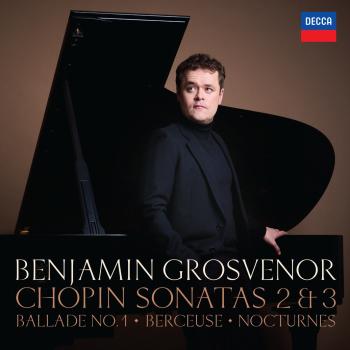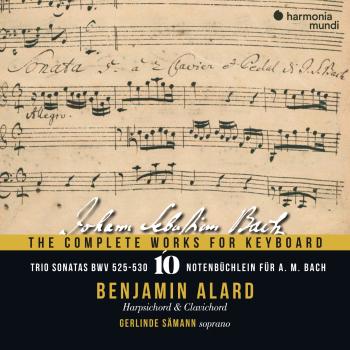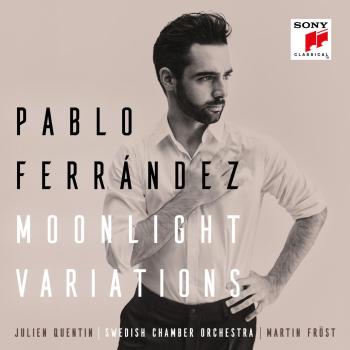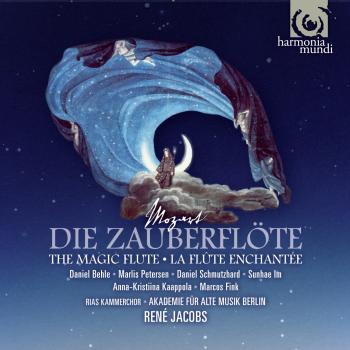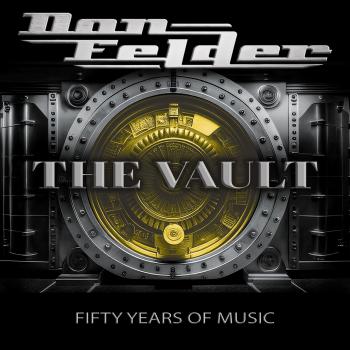
Gustav Mahler: Symphonie Nr. 5 Duisburg Philharmonic Orchestra - Jonathan Darlington
Album Info
Album Veröffentlichung:
2011
HRA-Veröffentlichung:
03.09.2011
Label: ACOUSENCE
Genre: Classical
Subgenre: Orchestral
Interpret: Duisburg Philharmonic Orchestra - Jonathan Darlington
Komponist: Gustav Mahler (1860 – 1911)
Das Album enthält Albumcover Booklet (PDF)
- 1 I. Trauermarsch. In gemessenem Schritt. Streng. Wie ein Kondukt 12:05
- 2 II. Stürmisch bewegt, mit größter Vehemenz 14:31
- 3 III. Scherzo. Kräftig, nicht zu schnell 17:54
- 4 IV. Adagietto. Sehr langsam 08:55
- 5 V. Rondo-Finale. Allegro 15:44
Info zu Gustav Mahler: Symphonie Nr. 5
Nach ihrer sehr erfolgreichen Einspielung von Mahlers 6. Symphonie vor einigen Jahren, präsentieren Jonathan Darlington und die Duisburger Philharmoniker nun eine ebenso überzeugende Aufnahme der 5. Symphonie.
Rückkehr zur Orchestersymphonie ohne Beteiligung von Singstimmen
Mit seiner fünften Symphonie begann Gustav Mahler einen Neuanfang. Er kehrte wieder zur Instrumentalsymphonie zurück, und er verzichtete nun auf jegliche inhaltliche Beschreibungen. Der fünften Symphonie waren die vier „Wunderhorn-Symphonien“ vorausgegangen. Texte aus Achim von Arnims und Clemens Brentanos Gedichtsammlung „Des Knaben Wunderhorn“ – teilweise neben weiteren Versen – fanden Eingang in die zweite, dritte und vierte Symphonie; Die erste Symphonie ist zwar eine reine Instrumentalkomposition, doch zitiert Mahler hier aus seinen „Liedern eines fahrenden Gesellen“. Die Verse hierzu hatte der Komponist selbst geschrieben, und er orientierte sich dabei an jenem volksliedhaften Tonfall, wie er auch in der Sammlung „Des Knaben Wunderhorn“ vorzufinden ist. Gustav Mahlers Symphonien stellen einen beispiellosen Kosmos dar. Die Wahrnehmung dieses Komponisten ist allumfassend, sie ist manchmal klein und schlicht oder humorvoll, aber auch grandios oder gespenstisch, drohend und unheilvoll. Auch ironische Brechungen spielen hinein: In einzigartige Weise erfasst Gustav Mahlers Musik den Geist des Fin de Siècle mit seiner verfeinerten Kultur einerseits, mit seiner unheilvollen Erwartungshaltung andererseits. Bislang war es völlig ungewöhnlich, schlichte liedhafte Eingebungen in die große Form der Symphonie aufzunehmen, und auch das „Adagietto“ der fünften Symphonie stellt eine Rücknahme dar, die der Erklärung bedarf. Die „Fünfte“ steht am Beginn einer Gruppe von drei reinen Instrumentalsymphonien, denn erst mit der achten Symphonie, der „Symphonie der Tausend“, und dem „Lied von der Erde“ werden – nun unter abermals gewandelten Bedingungen – wieder Stimmen einbezogen.
Gustav Mahlers fünfte Symphonie gilt als Beispiel „absoluter“ Musik, jedenfalls ist für dieses Werk kein außermusikalisches Programm überliefert. Jedoch handelt es sich hier wie bei allen bedeutenden Werken dieses Komponisten um Bekenntnismusik. Auch hier beleuchtet Mahler existenzielle Fragen, die Symphonie weitet sich zu einem umspannenden Kosmos aus, obwohl eindeutige Zuordnungen unbenannt bleiben. Somit liegt ein vielschichtiges Werk vor, dessen Deutungsmöglichkeiten eben nicht durch irgendwelche andeutende Beschreibungen eingeschränkt werden. Dennoch finden sich Indizien für eine derartige Vielschichtigkeit. Da gibt es Topoi wie Anlehnungen an das Volkslied und das Kinderlied, an den Choral und den Marsch. Außerdem ist es bezeichnend, dass Mahler hier einen ungewöhnlichen Weg einschlägt, denn der lastende Trauermarsch steht nun ganz am Beginn der Komposition. Zweifellos ist der Trauermarsch ein bevorzugtes Idiom bei Gustav Mahler, denn Trauermärsche oder trauermarschähnliche Bildungen finden sich unter anderem auch in der ersten Symphonie und am Beginn der „Auferstehungs-Symphonie“. So durchmisst die fünfte Symphonie die zahlreichen Stationen zwischen Tod, Erstarrung und lastender Schwere bis zur übermütigen Fröhlichkeit des Rondo-Finalsatzes. Und auch die Zusammenfassung der fünf Sätze in drei Abteilungen, die Zusammengehörigkeiten und übergreifenden Züge geben zu denken.
24Bit Quad Sampling Ultra Definition Recording
Bewertung: 10/10 (klassik-heute, 10.10.2011)
Jonathan Darlington is music director of the Duisburg Philharmonic Orchestra and Vancouver Opera. His demand for the highest level of professionalism and precision, infused with genuine enthusiasm, has ever increased the quality and popularity of both orchestras.
With the Duisburg Philharmonic Orchestra, whose profile he has significantly moulded over the past years, he conducts eight subscription weeks each season in a broad range of symphonic repertoire, as well as concert tours, festival guest engagements and live recordings. With the Vancouver Opera, he conducts two new productions each season, together with gala concerts and “Opera in Concert” events.
His most recent operatic successes include the world première of Manfred Trojahn’s “La Grande Magia” with the Staatkapelle Dresden, Gustave Charpentier’s “Louise” with the Deutsche Oper am Rhein, Strauss’ “Salome” with Vancouver Opera, “Beethoven’s “Fidelio” with the Opera Australia in Sydney, as well as the Robert Lepage directed Stravinsky’s “The Nightingale and Other Short Fables” at the Canadian Opera Company, Toronto. In March 2009 he also returned to the stage as accompanist for Schubert’s ‘Die Schöne Müllerin’ with the renowned baritone Dietrich Henschel. His most recent live recordings include Mahler’s Sixth Symphony, “Pelleas and Mélissande” by Schönberg and Fauré as well as the “Symphonic Ring” arrangement of Richard Wagner’s “Ring des Nibelungen”.
Sensitivity for depth and balance and an infectious dynamism are the hallmarks of Jonathan Darlington’s work. His vast symphonic and operatic repertoire ranges from the baroque to the contemporary, including lesser known works outside the European mainstream. He has a reputation for structuring programmes that take the listener on a fascinating musical journey, owing to their strong inner dramaturgy. He is especially committed to exploring connections between less easily accessible contemporary works and well known classical ones, surprising his audience with unexpected connections and resemblances. Fluent in several languages and at home in three countries, he thrives on the music making that comes as a result of the contact with different cultures and traditions.
Renowned for his broad repertoire, he gives regular guest appearances with major orchestras and opera houses the world over. Among the numerous orchestras where he is a regular guest are, to name a few, the Orchestre National de France, the Staatskapelle Dresden, the Prague Radio Symphony Orchestra, the Swedish Chamber Orchestra, the Orchestra Sinfonica del San Carlo di Napoli, the Orchestre Philharmonique de Strasbourg, the National Orchestra of Taiwan, the Warsaw Philharmonic, the BBC Symphony Orchestra, the Orchestre National de Bordeaux-Aquitaine, the English National Opera and Sydney Opera. He is a regular guest of many major European festivals, such as Amsterdam, Montreux and the Piano Festival Ruhr (Germany), as well as the German cutting edge arts festival RuhrTriennale.
Jonathan Darlington began his career as freelance pianist, accompanist and repetiteur. Born in Lapworth near Birmingham, UK, he studied music at Durham University and piano at the Royal Academy of Music, London, winning several prizes especially for his Lieder accompaniment. After graduation, he moved to Paris, where, with Radio France, he had the chance to work with some of the most outstanding musical personalities of our time; Pierre Boulez (Le soleil des eaux), Riccardo Muti (Verdi Requiem) and Olivier Messiaen (Trois petites liturgies). As a freelance recitalist and accompanist, he travelled France and the UK, working for the Nancy Opera and the French experimental touring company ARCAL, which he soon took over as music director. As member of the music staff of the Aldeburgh School for Advanced Studies, he worked with such renowned singers as Elisabeth Schwarzkopf, Ileana Cotrubas, Hugues Cuenod, Susanne Danko, Hans Hotter, Janet Baker and Peter Pears.
He made his conducting debut in 1984 at the Parisian Théâtre des Champs Elysées with Francesco Cavalli’s baroque opera “Ormindo”. An important stepping stone in his career was the Berlioz Festival Lyon, where he was assistant to Serge Baudo for “Les Troyens” in 1987, and later to John Nelson for “Benvenuto Cellini” (1989). In 1990 Myung-Whun Chung engaged Mr. Darlington as deputy to the music director at the Opéra de la Bastille, Paris, where he made his acclaimed debut in 1991 with “Le nozze di Figaro”, starring a dream cast including Renée Fleming and Cecilia Bartoli. He remained with the Paris Opera as deputy music director until 1993, conducting successes like “Die Zauberflöte” and “Das Lied von der Erde”. His “Swan Lake” with the Opéra de Paris was recorded for video in 1992.
Jonathan Darlington believes that music is at its best produced live and not in the studio, the audience being an integral part of the performance. His new series of audiophile live recordings with the label Acousence, recorded in the new Mercatorhalle, the Duisburg Philharmonic’s rebuilt and acoustically perfected concert hall, best meets this artistic credo.
He is also a driving force behind the DU Phil’s new media project, designed to reach out to new audiences and to bring classical music to the web 2.0. Darlington regularly writes for, and is featured in interviews and reports on the Duisburg Philharmonic’s new blog, “Dacapo”, and strongly supports the Vancouver Opera’s innovative online portal, “VOlive!”.
Jonathan Darlington holds the distinctions of a BA Honours degree of Durham University, a Chevalier des Arts et des Lettres, an Honorary LRAM and a Fellow of the Royal Academy of Music, London (FRAM).
Booklet für Gustav Mahler: Symphonie Nr. 5

